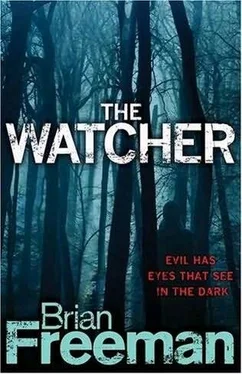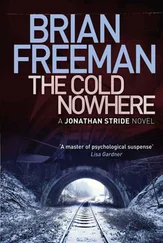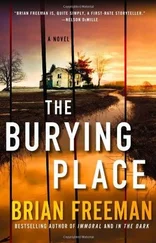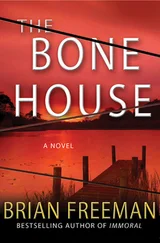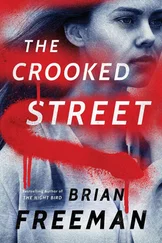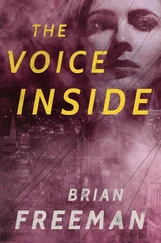“You’re making too much of this,” Tish said. She stood up, and the chair toppled backward into the sand behind her. “Laura was killed by a stalker. You’ve got Peter’s DNA. It’s up to you now.”
“I have one more question,” Stride told her. “And you’d better answer this one.”
Tish folded her arms in annoyance. “What?”
“When did Cindy show you a photo of our house?”
Tish’s mouth fell open. Stride thought she had slipped, that she had said something she never intended to share. “I don’t know. It was probably something she included with a Christmas card.”
“Stop lying to me. You said Cindy showed you a photograph. She didn’t send it to you. She was with you. When was this?”
“A few months before she died,” Tish admitted.
“Where?”
“She visited me in Atlanta.”
Stride searched his memory. In those last terrible months, Cindy had begun to wrap her mind around the fact that she was dying, that the treatment options had finally run out. The only time he could remember her being gone was a weekend where she went off by herself, vanishing from his side for three long days. To make peace with the past, she said. She never told him where she went or anything about her trip. Back then, he had been afraid that she might commit suicide to spare him and herself the agony of a slow death. He now knew that she had gone to see Tish.
Someone she had never mentioned to him in her entire life.
Why?
“You owe me the truth,” Stride said.
Tish picked up the fallen chair and steadied it in the sand. She sat down again but didn’t look at Stride.
“Cindy first wrote to me about fifteen years ago,” Tish said. “It was shortly after her father died.”
“Did you know William Starr?”
“Enough to despise him.”
Stride nodded. He remembered the long weeks in which Cindy had sat at her father’s bedside while he waged a losing battle with cancer. William Starr had always been a hard man to like. Judgmental. Rigid. Obsessed with righteousness and punishment and all the while terrified of going to hell for his own sins. Death has a way of softening even the toughest of men. Stride remembered Cindy holding her father’s hand, listening to him weep, giving him absolution in a way that no priest ever could.
“Cindy had no illusions about her father,” he said.
“Neither did Laura. She loved him despite everything he did to her, but I knew he was a gutless piece of shit. He cheated on their mother, did you know that? Multiple times. Laura heard them arguing about it.”
“Why did Cindy contact you when he died?”
Tish hesitated. “I guess when she lost him, it brought up all her old emotions about Laura. It’s that aloneness you feel when your family is gone. So she thought of me. She knew how close Laura and I were, and she decided to rekindle a friendship with me.”
“Then what?”
“We wrote back and forth for years. Not often, but enough that we became close.”
“She never told me about you,” Stride said.
“Well, we had a bond because of Laura. Cindy and I both lost someone we loved. Neither one of us ever put it behind us.”
“Why the visit in Atlanta?” Stride asked.
Tish’s voice was soft. “Cindy knew she was dying. She wanted to see me. To say good-bye. And to tell me things. She told me everything that happened to her that night in 1977. With Laura. With you. In the lake. Everything. Things she had never told anyone else before. That’s why I chose to put so much of the book in her voice.”
Stride shook his head. He felt as if he were falling, fast and hard. “Why would she do that?”
Tish took his hand.
“Because she didn’t want me to let it go. She wanted me to do something. That’s why I’m obsessed. That’s why I have to see this out and do whatever it takes to get to the truth. Don’t you see, Jon? That’s why I’m here. I’ve resisted it ever since Cindy came to me, but I couldn’t resist it anymore. Coming back after all these years wasn’t my idea. Writing a book about Laura’s murder wasn’t my idea. It was Cindy’s.”
When Serena arrived home after midnight, she found the door to their attic hanging open. The unfinished space had an Alice in Wonderland feel to it, like crossing over into a different dimension. The stairway was built right into the cottage’s great room, with five dark walnut steps leading up to two narrow locked doors. Behind the doors, a single lonely bulb gave light, and the old wooden beams climbed to a high ceiling. Several more steps ended in another set of doors, where century-old paint flecked off the finish. Tonight the upper doors were open, too. She continued to the attic level.
Up here, the heat gathered like a cloud during the warmer months, and during the winter it was frigid, and the old chambered windows collected frost. The space was wide open. The sharp peaks of the roof rose above her head. The unfinished floor was a minefield of splinters and nail pops. Spiderwebs hung like draperies from the beams. There was nothing but unpacked moving boxes strewn on the floor. They had plans to convert the upper floor into a master suite someday and take advantage of its quirky angles and lake views, but for now, it was a dumping ground for remnants of both of their pasts.
“Hey,” she said.
Jonny was seated on the floor in the middle of the attic. He wore only black boxers. His feet were bare, his hair damp and wild from the shower. The contents of two open boxes were scattered around him. She saw shoe boxes filled with photos, rubber-banded stacks of letters and postcards, and other paraphernalia from his marriage that he had long ago packed away.
He didn’t reply.
“God, it’s hot,” she said. She sat down near him and reached for a stack of photographs that showed Jonny and Cindy on the strip of lakeside beach on the Point. Both were young. Jonny’s hair was dark. One picture, slightly off center, had obviously been taken on a self-timer, with the camera balanced on a tree stump. It showed the two of them kissing. The kind of kiss you felt down to your toes. Serena couldn’t help herself; she felt a pang of jealousy. She put the photos back, not wanting to look anymore. She felt as if she had intruded on something sacred.
“You okay?” she asked.
Jonny looked lost. He didn’t share his memories easily. Serena had made it a point never to push him, because she had spent years dealing with the ghosts in her own past, and she knew that you couldn’t open up about them on anyone else’s time. Every now and then, he opened a window to her. Only a crack. Only when he was ready.
He lay back, propping himself up on his palms. When he looked up into the shadows of the high ceiling, she saw dark stubble on his face. For a man in his late forties, he was fit and strong. His stomach was taut. He worked out ferociously, as she did. It was only a stall, of course. Age was catching up to both of them, in their skin, their eyes, their muscles, their hair, and their bodies.
“Did I ever tell you about the day I found out Cindy had cancer?” he murmured.
“No, you didn’t.”
She could almost see his mind traveling back, retrieving the memory from among the cobwebs. She knew she was about to learn something important.
“I was investigating a girl’s disappearance,” he told her. “You remember the Kerry McGrath case? I was working on it sixteen hours every day. Cindy had been having unusual pain and vaginal bleeding, and so she had an MRI scheduled. I was supposed to go with her, but I totally forgot. She had to go alone. I didn’t get home until nearly midnight, and I never even remembered the appointment. She was sitting on the bed, smiling at me. This fragile smile, like glass. I didn’t notice. I was talking about the investigation, going on and on, and Cindy just smiled at me.”
Читать дальше
